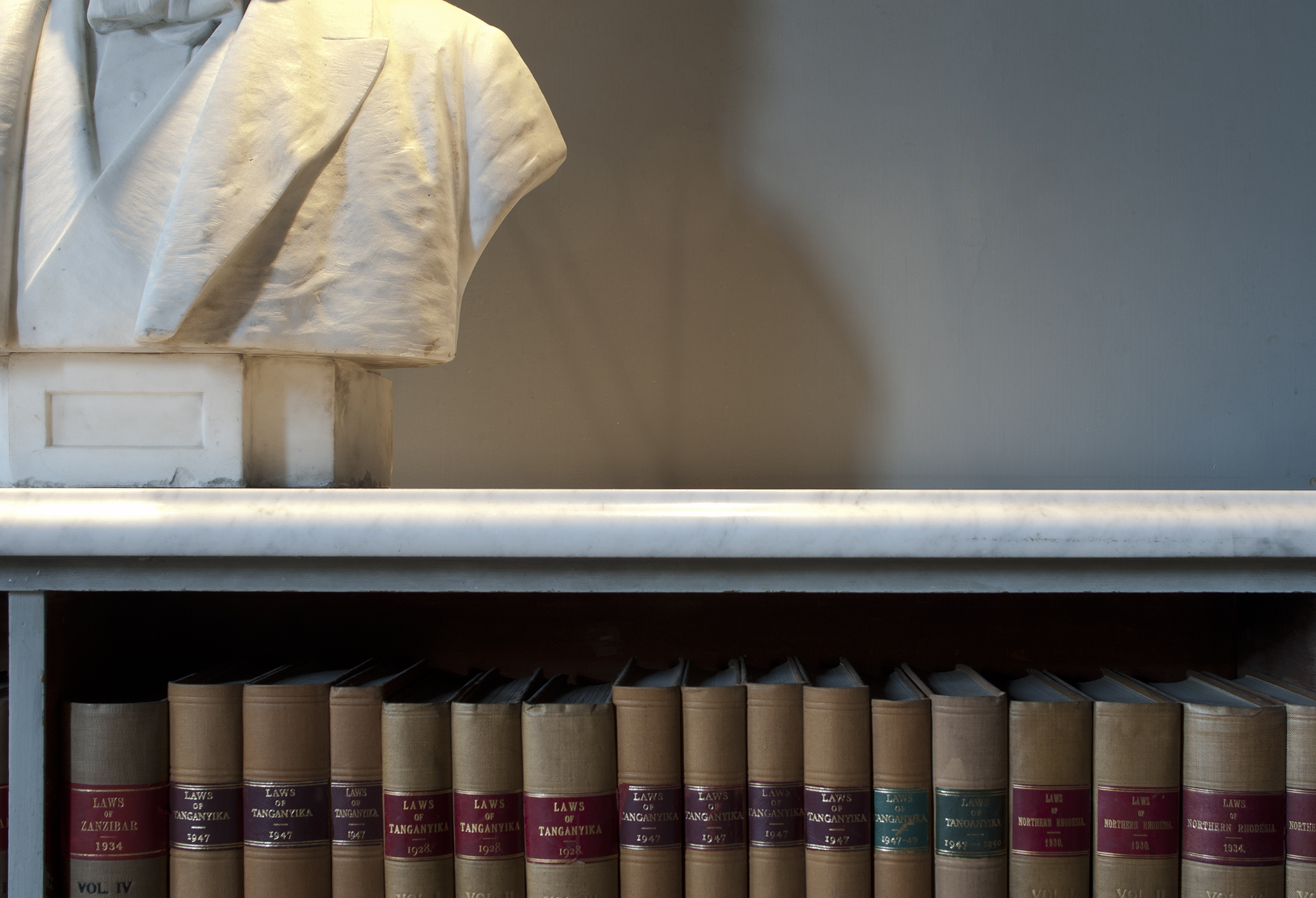THE WS SOCIETY ONLINE EXHIBITION 2024
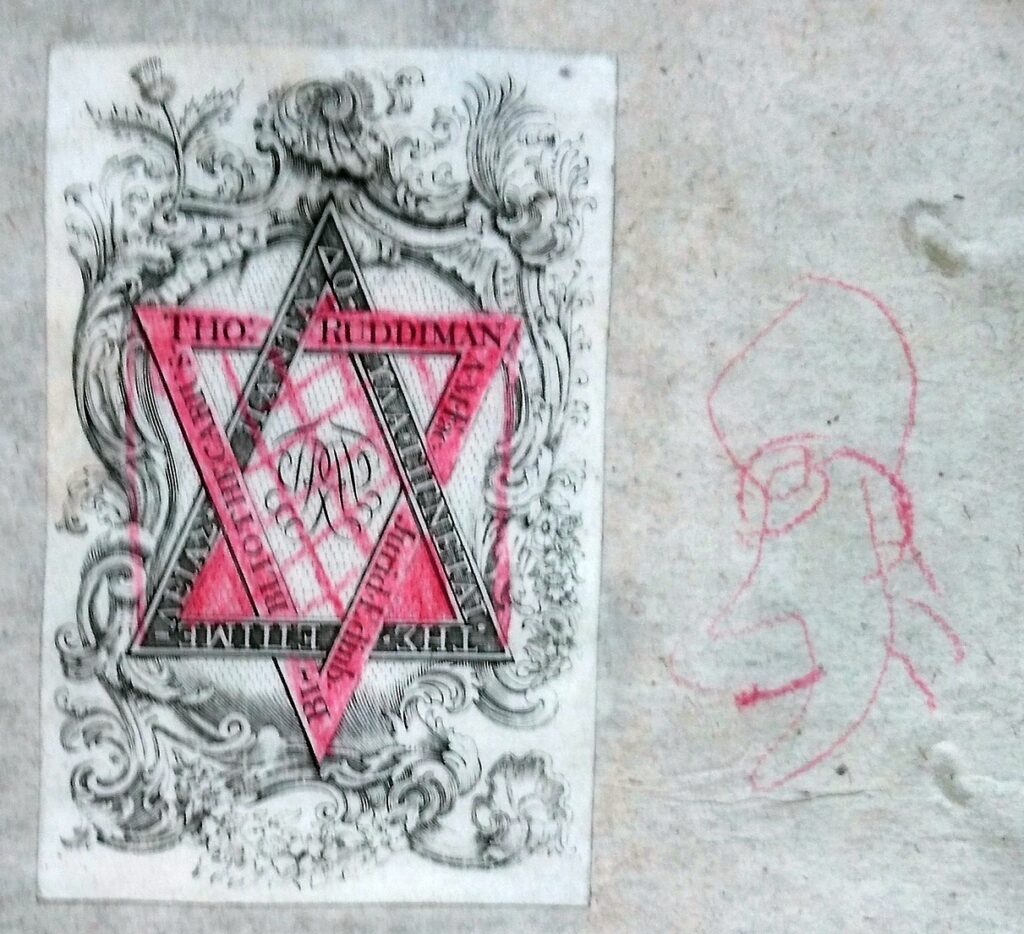
Publisher of Anderson’s Diplomata
Librarian of the Advocates Library Classicist and Scholar
Without the passionate intervention of Thomas Ruddiman (1674-1757), it is unlikely that James Anderson’s magnificent Diplomata Scotia would have been published at all. But Ruddiman’s intense commitment to Anderson’s cause was typical of a man who was one of the most remarkable figures of the Scottish Enlightenment. The sheer breadth of Ruddiman’s career is astonishing and included a long period as Scotland’s national librarian, and a long list of publications including an edition of George Buchanan’s works still in use today.
At a time when books and printed materials were the dominant form of communication and dissemination of information, traditions of collection, exchange and presentation of books were central to the spread of ideas and the encouragement of debate. Thomas Ruddiman was the greatest living embodiment of this essential Enlightenment practice.
He was regarded as Scotland’s leading scholar and was long mourned after his death by such figures as England’s Samuel Johnson. Throughout his long life Ruddiman was an evangelist for libraries, the collector of a great personal library in his own right and a key figure in the spread and dissemination of Scottish Enlightenment thinking in Edinburgh, Scotland and beyond.
Some Ruddiman Books in Signet Library Collections
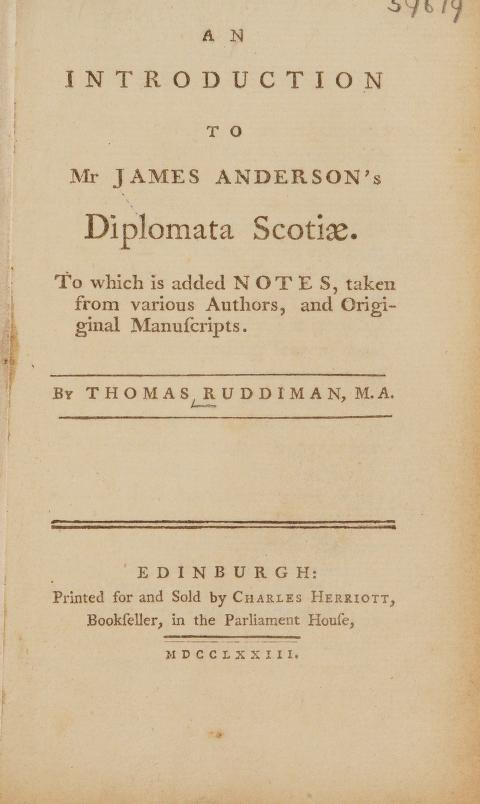
To which is added notes, taken from various authors, and original manuscripts.
Thomas Ruddiman (1674-1757), scholar and publisher
Edinburgh : printed for and sold by Charles Herriott, bookseller, in the Parliament House, MDCCLXXIII [1773]
Ruddiman’s heroic publication of James Anderson’s Diplomata Scotiae in 1737 was accompanied by a lengthy introduction in Latin composed by Ruddiman himself. The introduction was much more than an apology for Anderson and encompassed an entire introduction to Scotland’s ancient charters and coinage that was of value in its own right. But attached as it was to one of Scotland’s most expensive and unwieldy printed books its circulation was limited until the arrival of this 1773 translation which appears to have been deliberately cheaply produced in order to guarantee wide circulation.
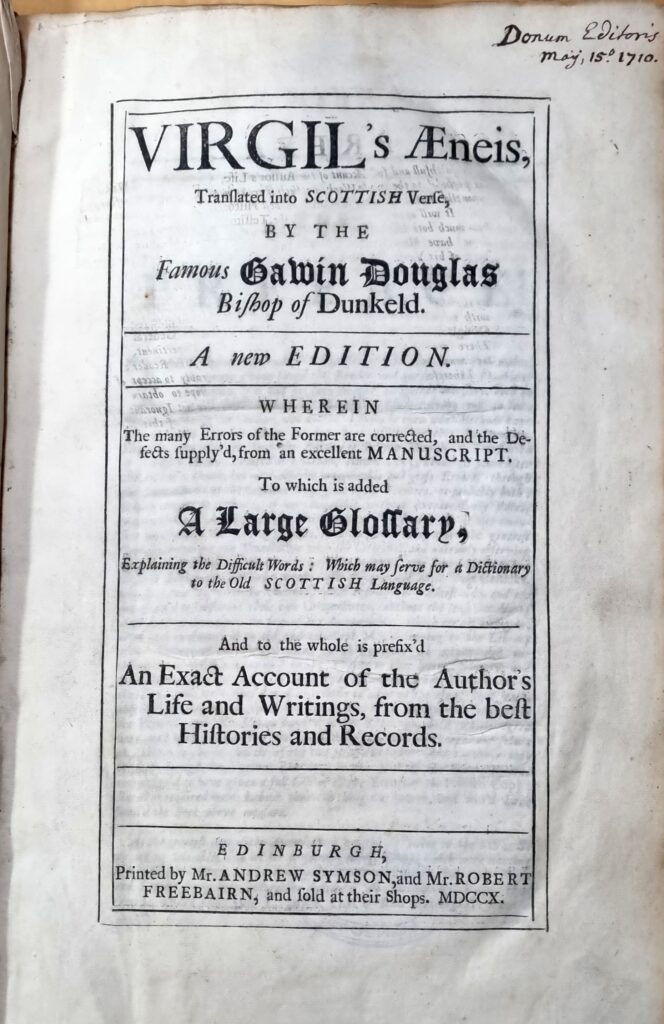
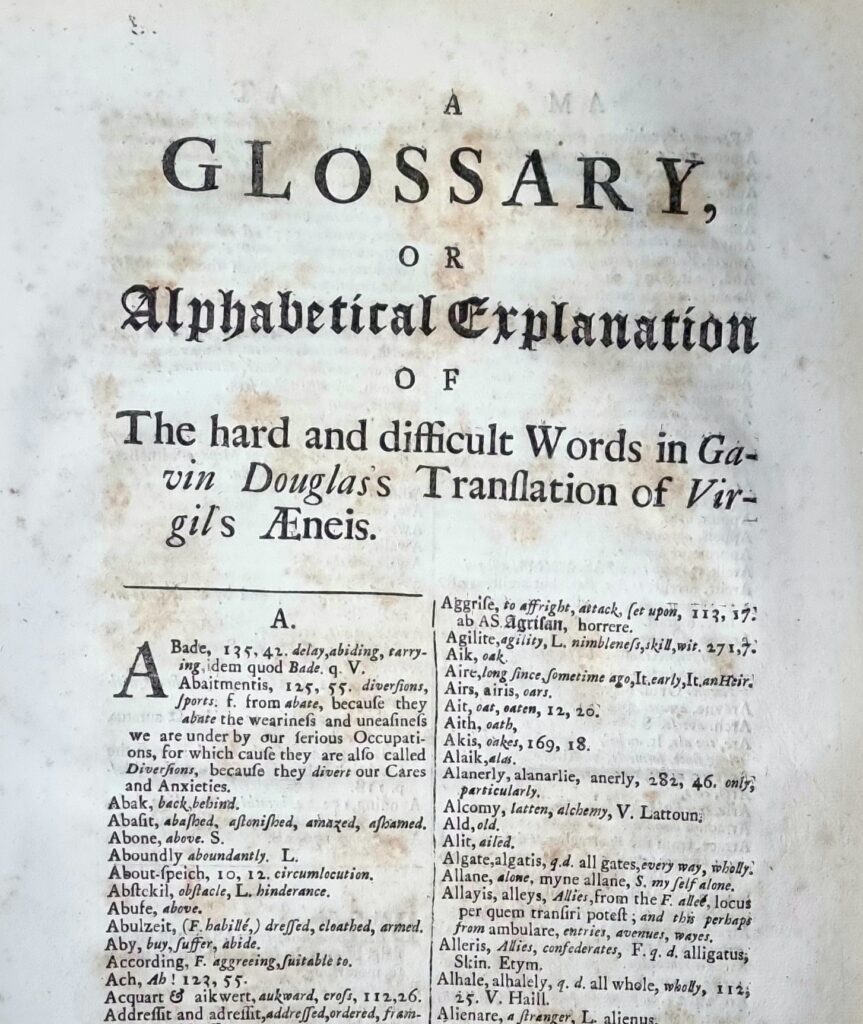
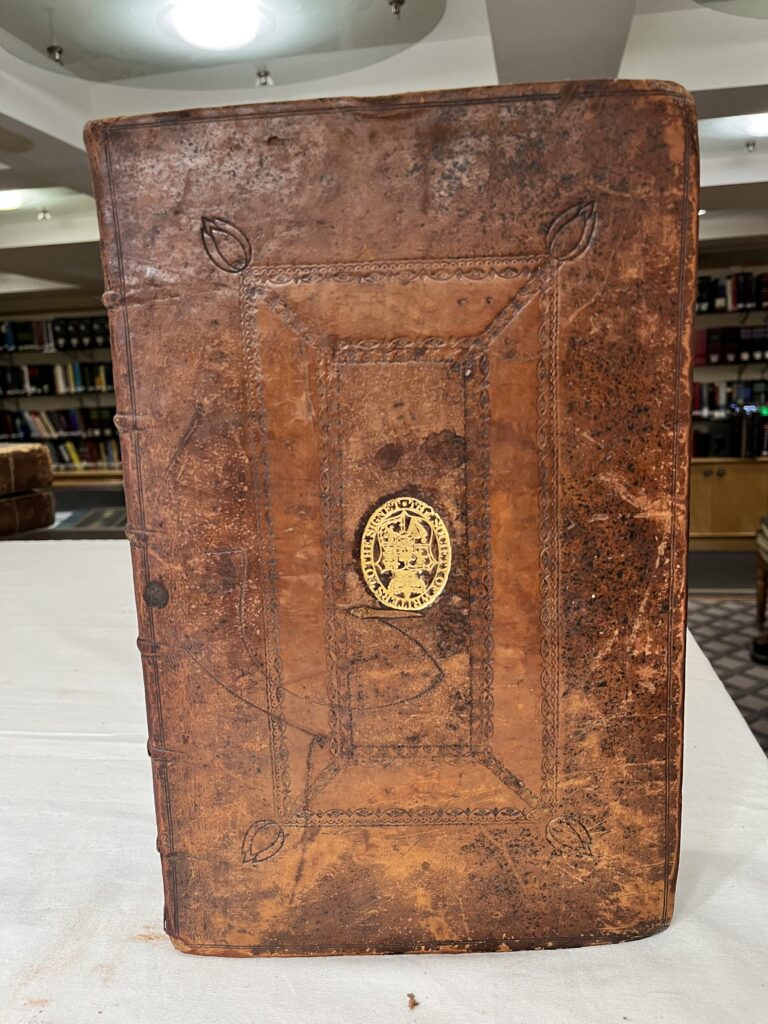
In 1710 Thomas Ruddiman published two exceptionally fine editions of the magnificent translation of Virgil’s Aeneid by the Scottish poet Gavin Douglas. The Signet Library copy is the second of these and bears Ruddiman’s gift inscription to an unknown recipient. The Douglas translation was the first of a classical text into any form of English and was published in London in 1550 (the Signet Library also holds this first printing). It remains a highly valued and respected translation 470 years on, and has recently been reprinted. Ruddiman’s edition included a glossary of “the hard and difficult words” that was and is a key document of the literary and demotic Scots of Douglas’ day.
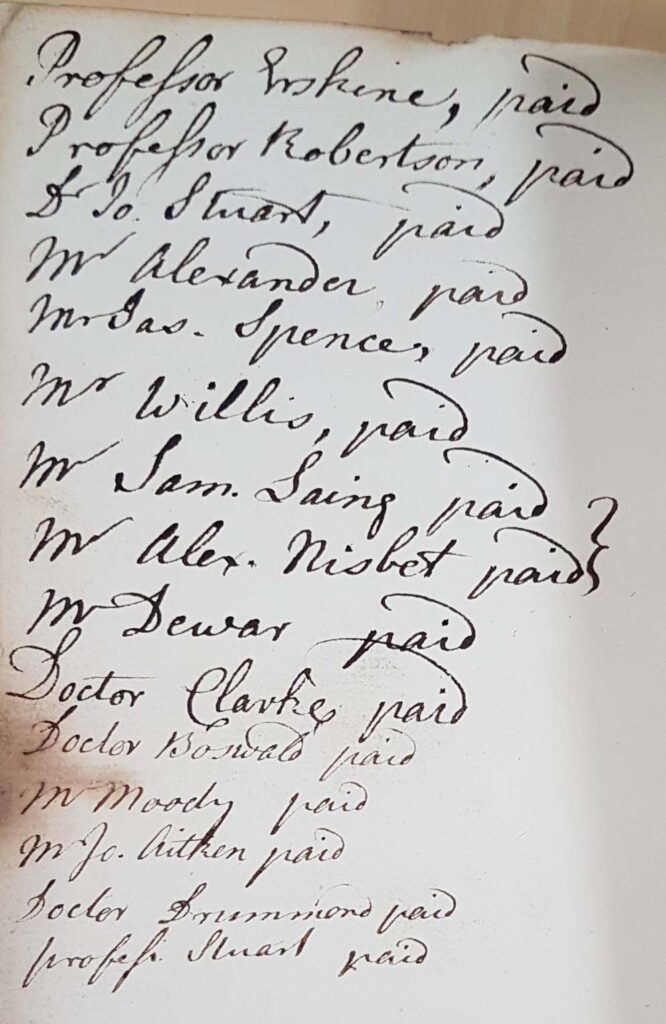
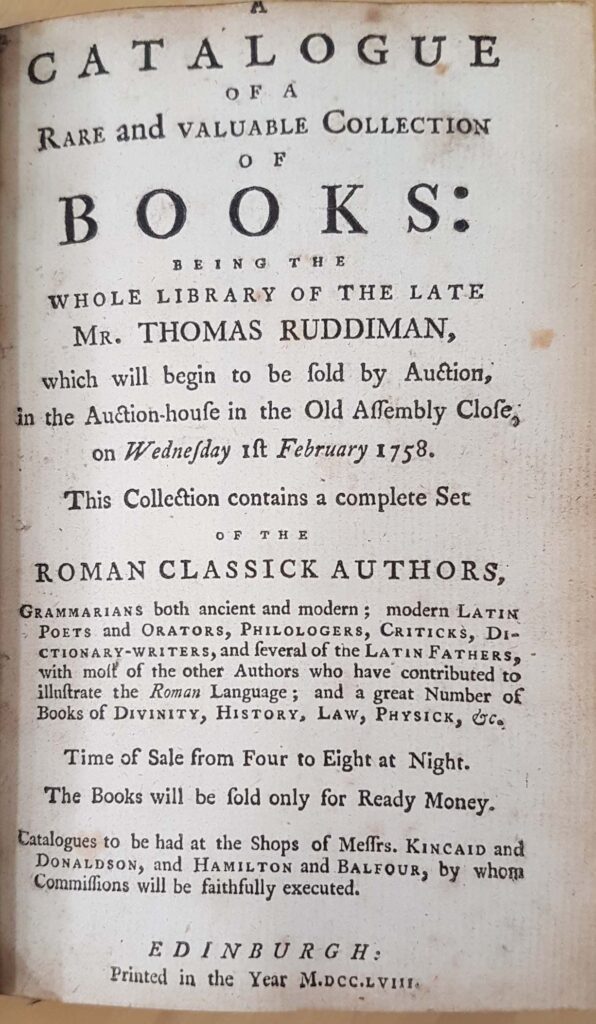
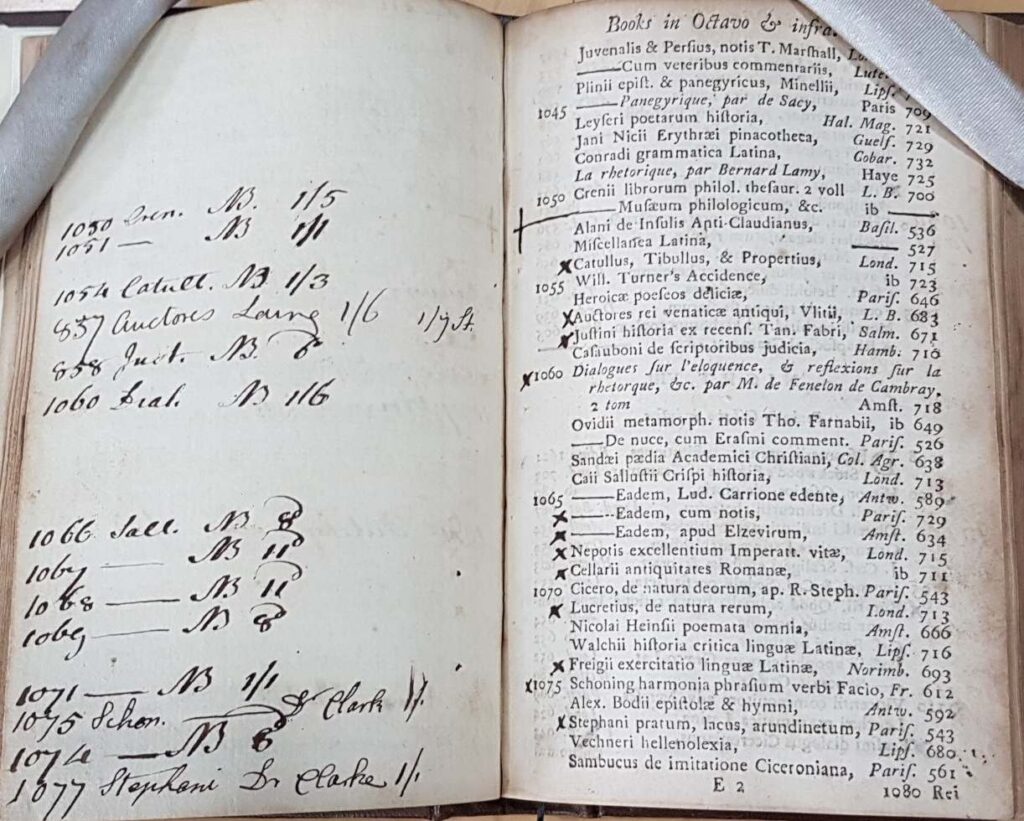
A catalogue of a rare and valuable collection of books: being the whole library of the late Mr. Thomas Ruddiman, which will begin to be sold by auction, in the auction-house in the Old Assembly Close. on Wednesday, 1st February 1758. This collection contains a complete set of the Roman classick authors, grammarians both ancient and modern; modern Latin poets and orators, philologers, criticks, dictionary-writers, and several of the Latin fathers, with most of the other authors who have contributed to illustrate the Roman language; and a great number of books of divinity, history, law, physick, & c..
[Thomas Ruddiman (1686-1758), printer, classical scholar and librarian]
Edinburgh : Kincaid and Donaldson, and Hamilton and Balfour, 1758.
Thomas Ruddiman built one of the most important private book collections in Enlightenment Scotland.
This copy of his auction catalogue was the one used by his wife, Anna Smith, to oversee the sale, and it contains prices and buyer’s details in her hand.
It is unlikely that the Library of the Writers to the Signet were buyers at the auction, although individual Writers to the Signet almost certainly were. Listed amongst the buyers are “Dr. Boswald” (probably Dr. James Boswell, author of De Malo Hysterico), the historian William Robertson, and John Erskine of Carnock, the author of Principles of the Law of Scotland.
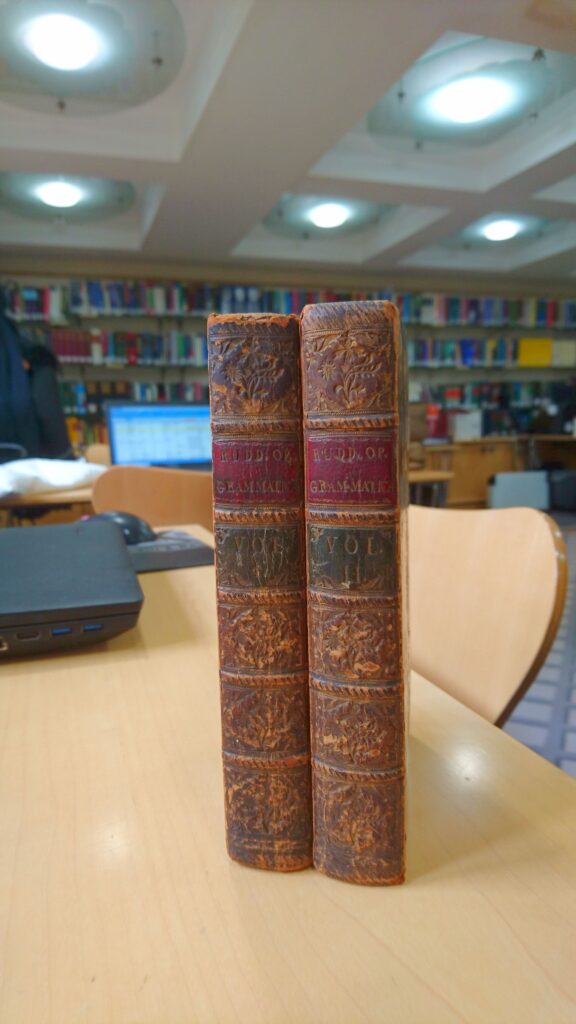
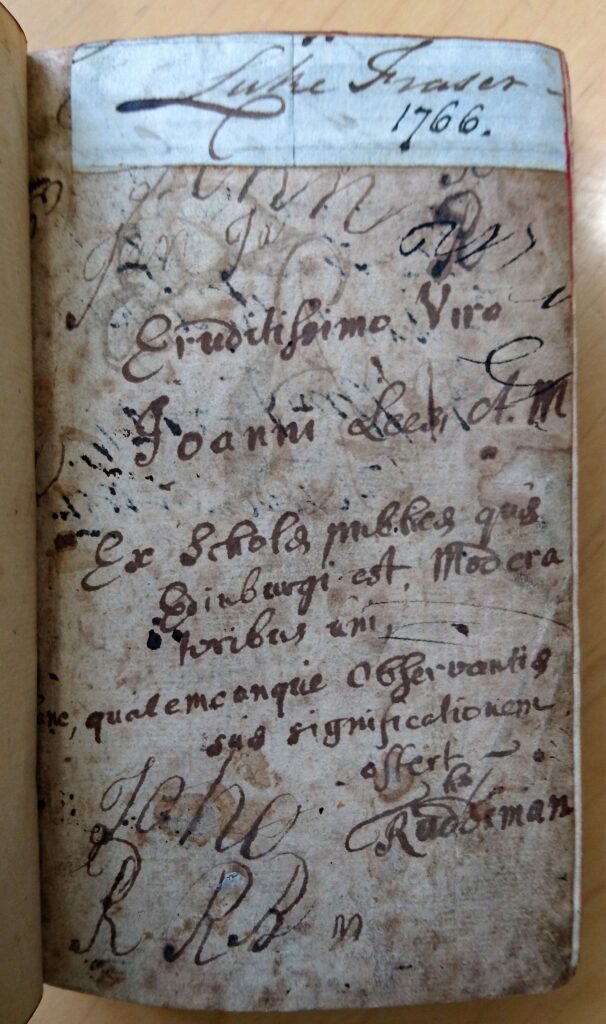
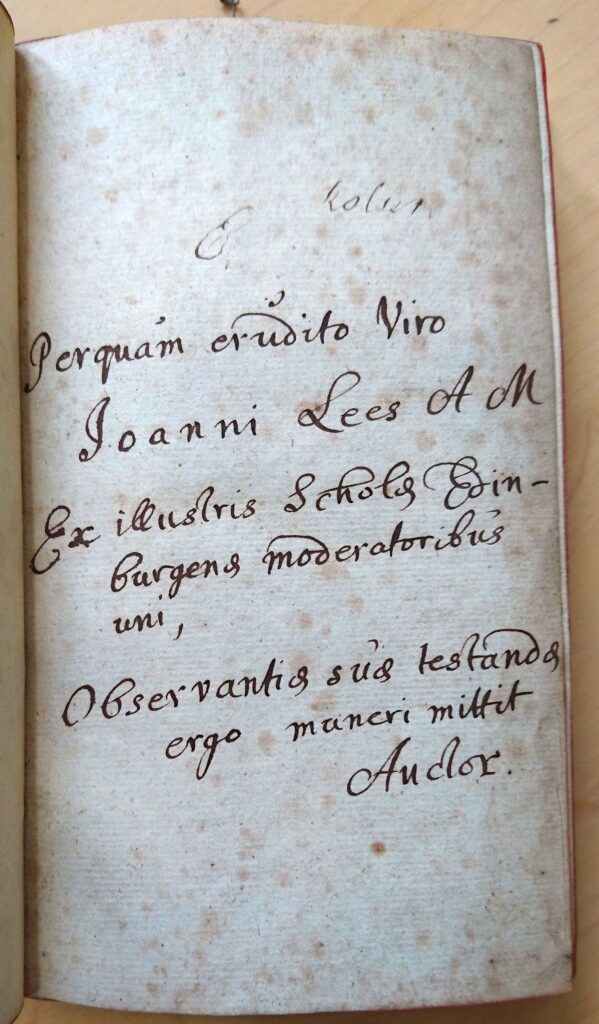
Thomas Ruddiman (1686-1758), printer, classical scholar and librarian
Edinburgh : in aedibus auctores, 1725-31.
Ruddiman’s The Rudiments of the Latin Tongue, published in both Latin and English, was the standard school Latin grammar for most of the eighteenth century. This copy bears Ruddiman’s dedication in his own hand to the Edinburgh Royal High School master John Lees, along with an ownership inscription, dated 1766, by a later master at the school Luke Fraser whose descendant William Fraser WS donated the volumes to the Signet Library in 1851.
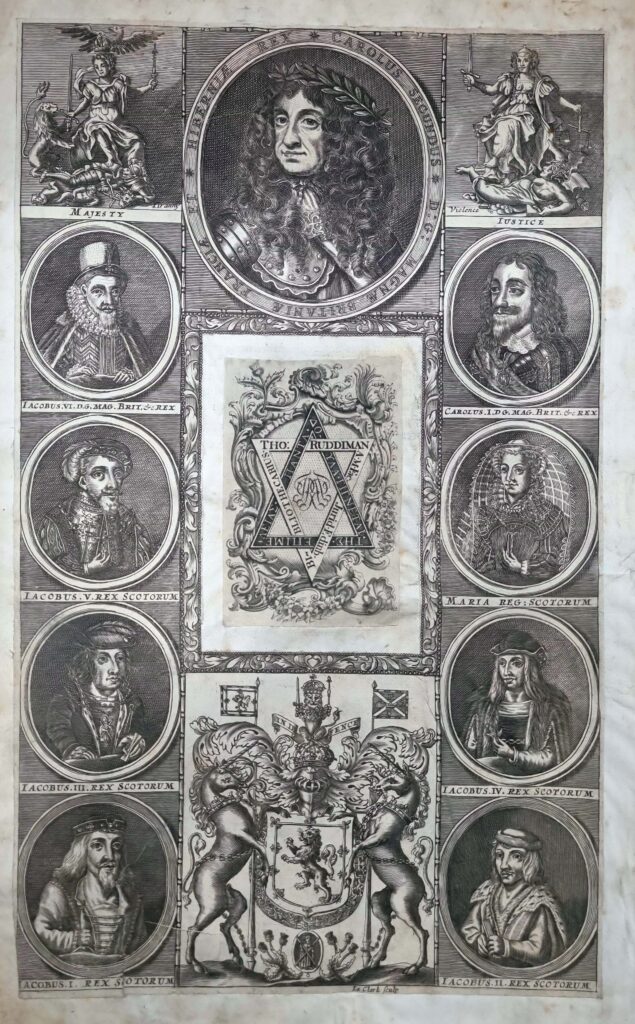
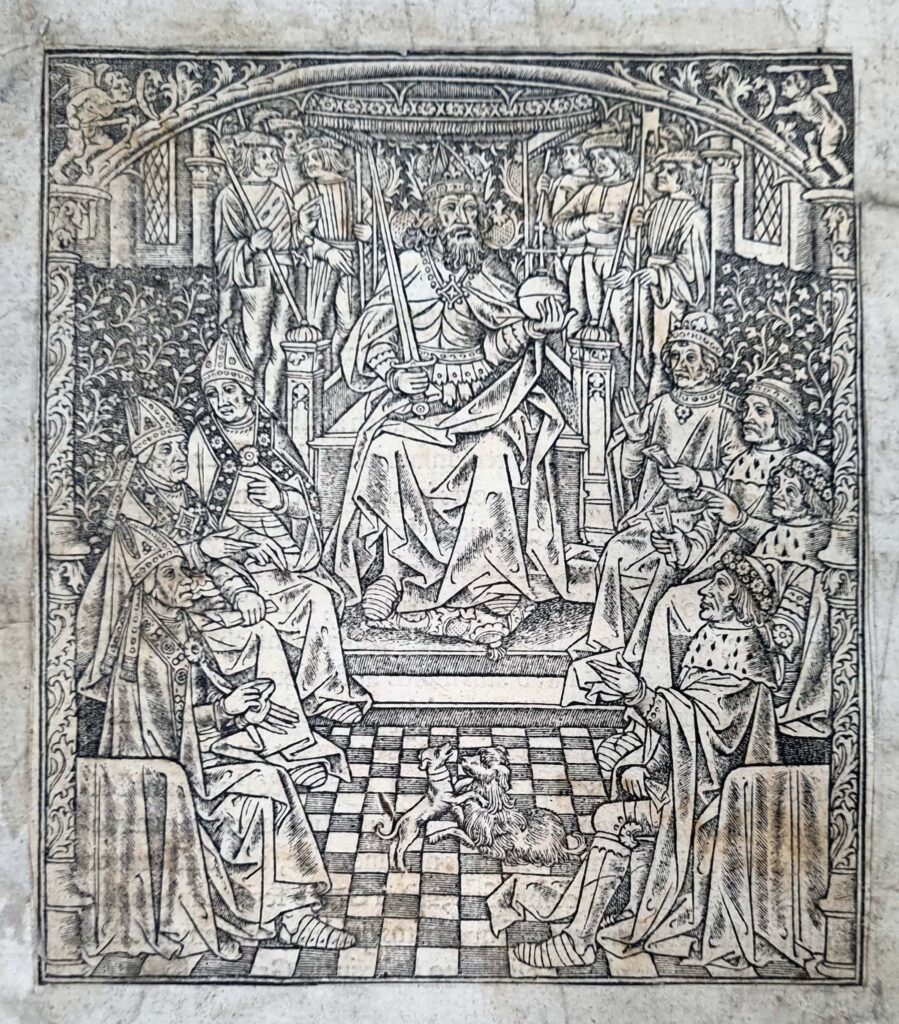
This copy of Justinian is a remarkable witness to Ruddiman’s love of country and of books. The boards carry his thistle-strewn bookstamp; his bookplate is pasted into the centre of the title page of Glendook’s Acts, surrounded by the Scottish monarchs, and the page then bound into the Justinian; and the woodcut of Justinian that Ruddiman has pasted onto the endpaper is from an incunable (Thielman Kerver’s 1499 Volumen peculiari vocabulo dictum totius legalis sapientie continens complementu). Such personal intervention in the makeup of a book is relatively unusual, especially from such a major figure, and bears witness to Ruddiman’s awareness of and pride in the independence of the Scottish law, a Roman Law jurisdiction, that was guaranteed by the Union and continued after 1707 to our present day.
Further Reading
Douglas Duncan Thomas Ruddiman: a study in Scottish scholarship of the early eighteenth century (Edinburgh 1965)
George Chalmers The Life of Thomas Ruddiman (London 1794)
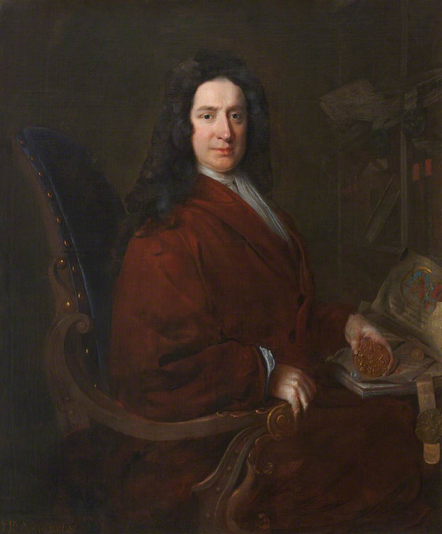
- Setting The Scene : Lawyers and Intellectuals Before 1722
